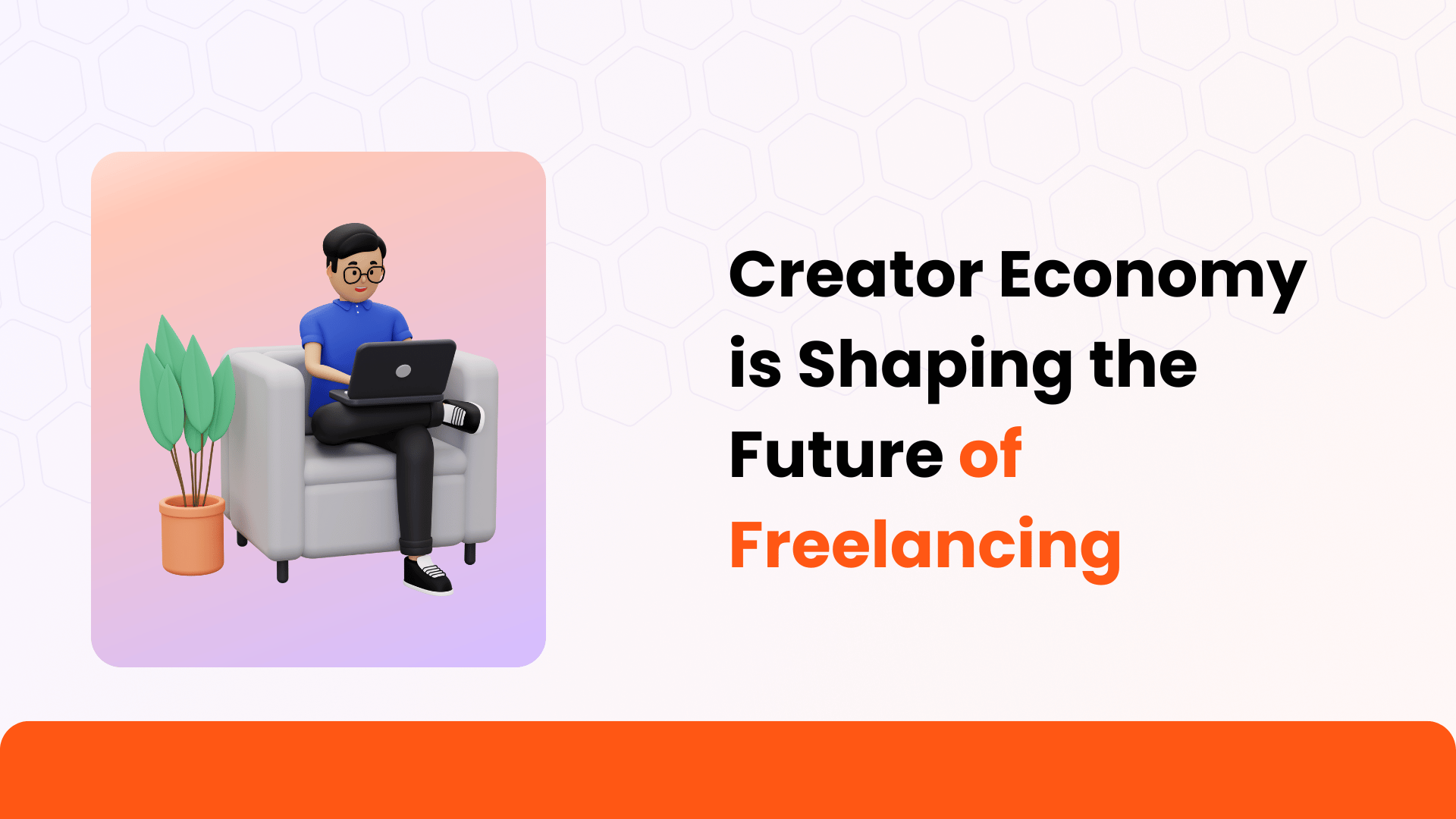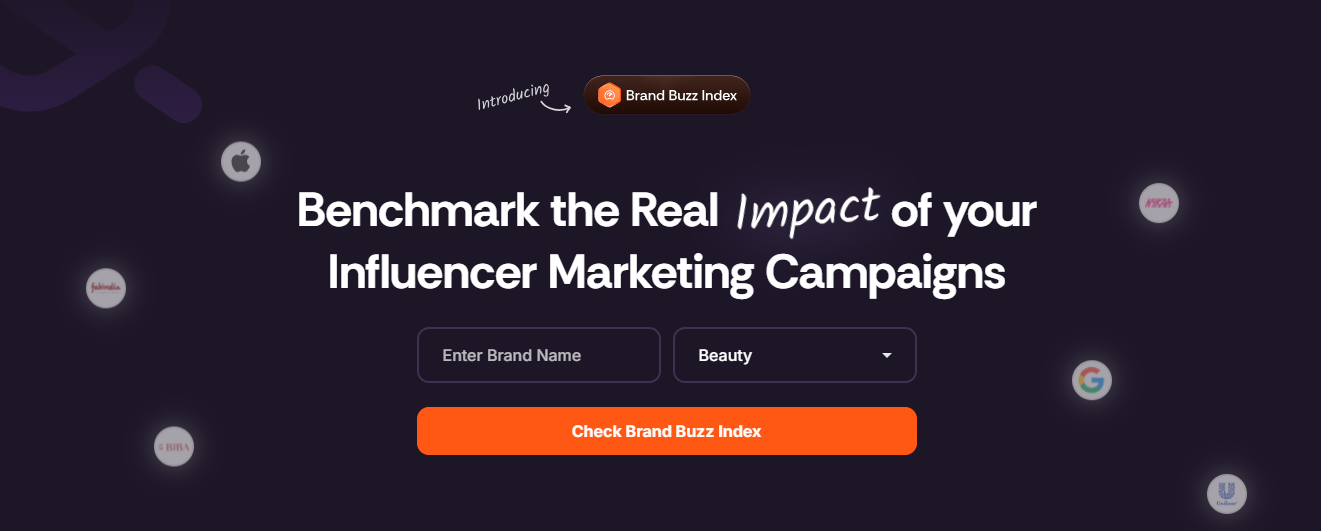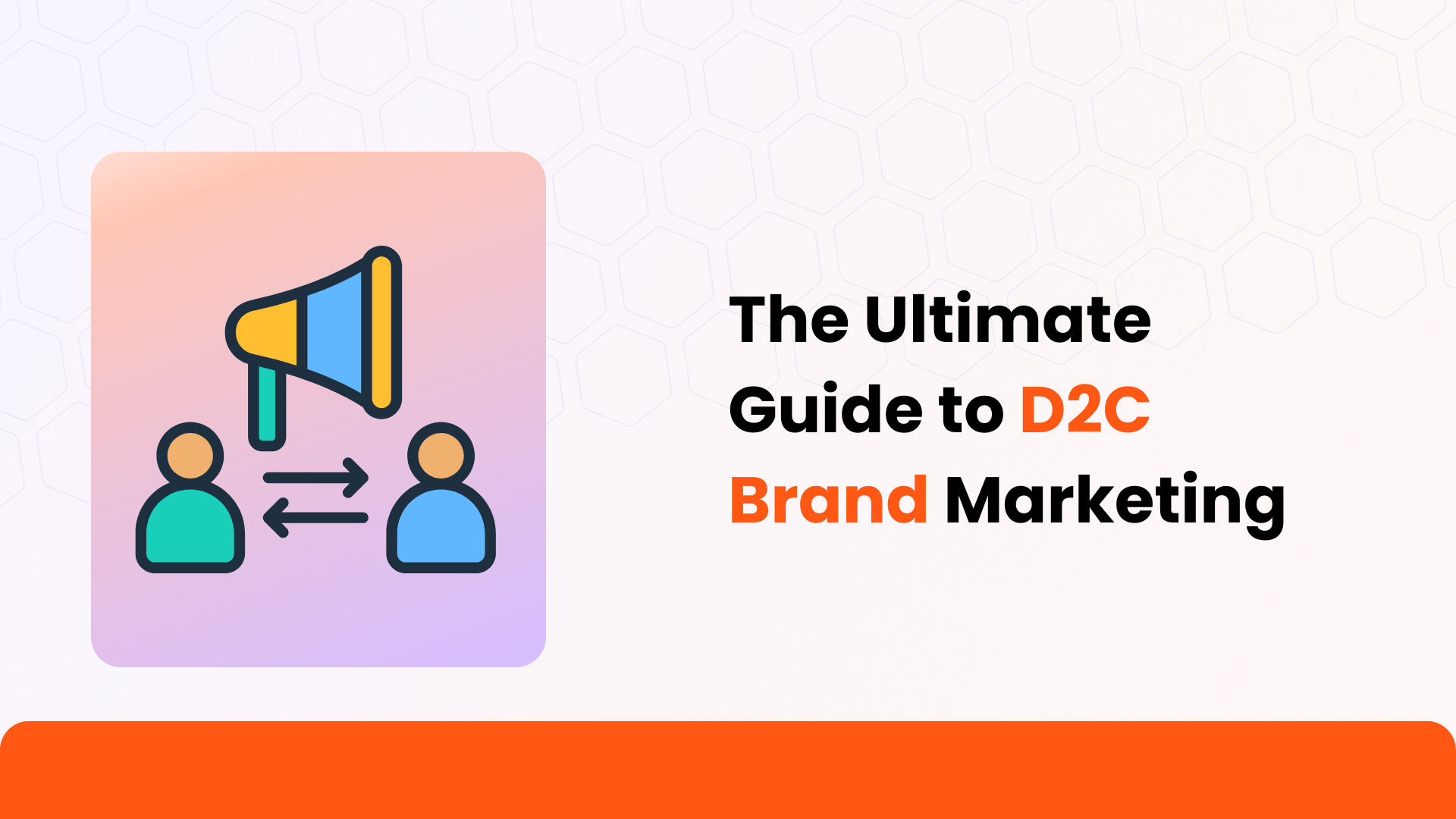The digital revolution has fundamentally transformed how we work. Over the past decade, the gig economy has evolved from a fringe employment model into a dominant force shaping the future of work. What began as simple task-based platforms has matured into sophisticated marketplaces where skilled professionals build thriving careers. Today’s freelancers aren’t just filling gaps between traditional jobs, they’re building sustainable businesses, serving global clients, and enjoying unprecedented professional autonomy.
This transformation coincides with the explosive rise of the creator economy, a $250 billion industry that’s redefining how value is created and exchanged online. Platforms like YouTube, TikTok, and Instagram have democratized content creation, turning passionate creators into influential voices and successful entrepreneurs. This isn’t just about entertainment, it’s a fundamental shift in how people build audiences, monetize expertise, and create sustainable digital businesses.
The convergence of these two trends; the professionalization of freelancing and the democratization of content creation, is creating extraordinary opportunities. Today’s freelancers aren’t limited to traditional service offerings. They can leverage content platforms to showcase expertise, build personal brands, and create multiple revenue streams. Digital marketers can combine client services with their own content channels. Writers can transition from client work to building profitable newsletters. Video editors can serve corporate clients while growing YouTube audiences.
This intersection of freelancing and the creator economy represents more than just a trend, it’s a fundamental shift in how independent professionals can build and scale their businesses. The opportunities span content creation, digital marketing, brand partnerships, and entirely new hybrid business models that combine service delivery with content monetization. For freelancers willing to embrace this evolution, the potential for growth and impact has never been greater.
The Expanding Freelance Opportunities in Content Creation
The creator economy has catalyzed an unprecedented expansion in freelance opportunities. The insatiable demand for digital content has spawned entirely new career paths that blend creative expertise with strategic thinking. This isn’t just about creating content, it’s about understanding audience psychology, platform dynamics, and the nuanced art of digital storytelling.
Video Production:
Video production has emerged as a particularly lucrative field for freelancers. Today’s video producers are equal parts technician and strategist, crafting content that resonates across platforms while driving measurable engagement. They’re not just editing footage they’re optimizing for platform algorithms, designing thumb-stopping thumbnails, and engineering content that converts viewers into loyal followers.
Social media management
Social media management has evolved far beyond posting updates and monitoring comments. Modern social media freelancers function as growth strategists, combining data analysis with creative storytelling to build engaged communities. They understand the subtle differences between platforms, knowing that what works on Instagram might fall flat on TikTok. These professionals help influencers and brands navigate the complex ecosystem of social media, developing strategies that drive sustainable growth and meaningful engagement.
Content Strategy and Copywriting
The field of content strategy and copywriting has undergone its own transformation. Today’s content strategists are architects of digital presence, crafting narratives that resonate across multiple touchpoints. They understand SEO, user psychology, and the critical role of content in the modern customer journey. Their work extends beyond writing to encompass content architecture, distribution strategy, and performance optimization.
Perhaps most significantly, content creation has opened up diverse revenue streams that weren’t possible in traditional freelancing. Through affiliate marketing, freelancers can earn passive income by recommending products and services they believe in. Sponsored content opportunities allow them to leverage their expertise and audience trust to create valuable partnerships with brands. Collaborations with influencers provide access to larger audiences while creating opportunities for knowledge exchange and mutual growth.
Diverse Revenue Streams
The beauty of these new opportunities lies in their scalability. Freelancers can start with client services, build their own audience through consistent content creation, and gradually develop multiple revenue streams that work together synergistically. A video editor might serve clients while building a YouTube channel that generates ad revenue. A copywriter could write for clients while developing digital products that solve common pain points in their industry.
Skill Overlap Between Freelancing and Influencer Marketing
The convergence of freelancing and influencer marketing has created a rich ecosystem where technical skills meet strategic thinking. This intersection offers unique opportunities for freelancers to leverage their existing expertise in new, profitable ways. What makes this overlap particularly powerful is how traditional freelance skills directly translate into the creator economy.
Content Creation and Video Production
Content creation serves as the natural bridge between these worlds. Freelancers skilled in video editing, copywriting, and graphic design find themselves uniquely positioned to serve the growing needs of influencers and brands. Video production specialists bring sophisticated technical knowledge to influencer content, elevating production quality through professional editing, sound design, and motion graphics. Their understanding of visual storytelling helps transform raw footage into compelling narratives that resonate with audiences.
Social Media Strategy
The social media landscape demands an increasingly nuanced approach to content strategy. Freelancers who specialize in social media management bring valuable insights to influencer collaborations, helping build cohesive brand identities across multiple platforms. They understand the delicate balance between authenticity and promotion, helping influencers maintain genuine connections with their audiences while optimizing for growth and engagement.
Brand Collaborations
Brand collaborations represent another crucial intersection. Freelancers with experience in influencer marketing possess the unique ability to speak both languages, understanding brand objectives while respecting creator authenticity. They navigate the complex world of partnership negotiations, translate analytics into actionable insights, and ensure campaigns deliver measurable results for all parties involved.
Storytelling
The soft skills that drive success in both worlds are remarkably aligned. Storytelling stands as a fundamental requirement, whether crafting a compelling video narrative or writing an engaging social media post. The ability to weave authentic, emotionally resonant stories that capture attention and drive action is invaluable in both freelancing and content creation.
Audience Engagement
Audience engagement represents another critical overlap. Both freelancers and influencers must master the art of building and nurturing community relationships. This goes beyond simple interaction metrics, it’s about creating meaningful connections that foster loyalty and drive long-term engagement. Understanding audience psychology and behavior patterns helps professionals in both spaces create content that truly resonates.
Data-Driven Decision Making
Perhaps most significantly, success in both worlds increasingly relies on data-driven decision making. Modern freelancers and influencers alike must be adept at interpreting analytics, tracking performance metrics, and optimizing strategies based on concrete data. This analytical approach ensures resources are allocated effectively and campaigns deliver measurable returns on investment.
The beauty of this skill overlap lies in its mutually reinforcing nature. As freelancers develop their expertise in creator economy tools and techniques, they become more valuable to both traditional clients and influencer partnerships. Similarly, the strategic thinking required for influencer marketing enhances their ability to deliver results across all client work.
How Freelancers Can Thrive in the Creator Economy
Success in today’s digital landscape requires more than just technical expertise, it demands a fundamental shift in how freelancers view themselves and their businesses. The creator economy has opened up unprecedented opportunities for those willing to think beyond traditional service-for-hire models and embrace a more dynamic approach to building their careers.
Embracing the Creator Mindset
Adopting a creator mindset represents the first crucial step in this evolution. Modern freelancers must see themselves as more than service providers, they are personal brands with unique perspectives and valuable expertise to share. This shift in thinking transforms how freelancers present themselves in the market. Instead of simply listing services, they showcase thought leadership, share insights, and build authority in their chosen niches.
Portfolio Building
Portfolio building in the creator economy transcends traditional work samples. Today’s successful freelancers curate dynamic online presences that demonstrate both technical skills and strategic thinking. They create content that showcases their expertise while providing value to their target audience. This might include behind-the-scenes looks at their creative process, educational content that demonstrates their knowledge, or case studies that highlight their strategic approach to client challenges.
Networking with Influencers
Networking has evolved beyond traditional professional circles. Successful freelancers actively seek collaborations with influencers, understanding that these partnerships can lead to exponential growth opportunities. These relationships often start small, perhaps offering specialized expertise or support, but can evolve into lasting partnerships that benefit both parties. The key lies in approaching these relationships with authenticity and a clear understanding of mutual value creation.
Upskilling for the Digital Age
Continuous learning and adaptation have become non-negotiable in this rapidly evolving landscape. Freelancers must stay ahead of emerging trends, whether it’s mastering new social platforms, understanding changing audience preferences, or adapting to new content formats. The rise of short-form video, live streaming, and interactive content creates both challenges and opportunities for those willing to expand their skill sets.
Creating Passive Income Streams
Perhaps most significantly, the creator economy offers freelancers the opportunity to build passive income streams alongside their service businesses. By developing and monetizing their own content through platforms like YouTube, Medium, or Patreon, freelancers can create multiple revenue streams that work together synergistically. A graphic designer might create design tutorials that generate ad revenue while attracting higher-quality clients. A copywriter could develop writing courses that provide passive income while establishing them as an authority in their field.
This multifaceted approach to income generation isn’t just about making more money, it’s about building sustainable, scalable businesses that can weather market changes and create long-term value. Success requires strategic thinking, consistent effort, and a willingness to experiment with new formats and platforms while maintaining the high standards that clients expect.
The Role of Platforms in Supporting the Creator Economy and Freelancers
The platform ecosystem supporting freelancers and creators has undergone a remarkable transformation. Traditional freelancing platforms have evolved beyond simple job boards into sophisticated marketplaces that recognize and support the growing intersection of freelancing and content creation.
Freelancing Platforms
Platforms like Fiverr, Upwork, and Flexable have adapted their offerings to meet the evolving needs of the creator economy. They’ve introduced specialized categories for content creation, expanded their project scopes to include ongoing creator support, and developed tools that facilitate long-term collaborations between freelancers and content creators. These platforms now feature dedicated spaces for video production, social media management, and content strategy services, making it easier for freelancers to connect with creators who need their expertise.
Influencer Marketing Platforms
The emergence of creator-focused platforms has further expanded opportunities for freelancers. Platforms like Qoruz, HashFame Grin, Hypeauditor, and AspireIQ have created specialized platforms/ marketplaces where influencers can directly connect with both creators and brands. These platforms understand the unique dynamics of influencer marketing and provide tools specifically designed to support these collaborations. They offer features for campaign management, performance tracking, and relationship building that help freelancers deliver more value to their creator clients.
Read : Best Influencer Marketing Platforms for Brands in 2024
Challenges and How to Overcome Them
The convergence of freelancing and the creator economy, while rich with opportunity, presents significant challenges for professionals navigating this evolving landscape. The intensifying competition in both spaces requires freelancers to think strategically about their positioning and value proposition.
Competition in the Creator Economy
Competition has reached unprecedented levels as more professionals enter both the freelancing and creator spaces. However, this challenge creates an opportunity for those willing to specialize and differentiate. Success lies in finding and dominating specific niches, whether that’s creating engaging explainer videos for SaaS companies or specializing in Instagram ad campaigns for direct-to-consumer brands. By developing deep expertise in specific areas and combining it with unique insights or methodologies, freelancers can stand out in an increasingly crowded market.
Balancing Multiple Income Streams
Perhaps the most pressing challenge facing modern freelancers is the complex task of balancing multiple income streams. Managing client work while building personal content and pursuing creator collaborations can feel like juggling with too many balls in the air. The solution lies in developing systematic approaches to time management and leveraging automation tools effectively. Strategic use of platforms like Buffer and Hootsuite can streamline content distribution, while clear prioritization frameworks help maintain focus on high-impact activities.
Embracing the Future of Work
The creator economy represents more than just a new opportunity for freelancers and influencers. it’s reshaping the very nature of independent work. The possibilities available today would have been unimaginable just a few years ago. As influencers and content creators continue to gain prominence and influence, freelancers who embrace this ecosystem position themselves at the forefront of digital entrepreneurship.
This evolution offers unprecedented opportunities for income diversification, creative collaboration, and personal growth. The successful freelancers of tomorrow will be those who can bridge the gap between traditional service delivery and content creation, building sustainable businesses that leverage both worlds.
The time to act is now. Freelancers should actively explore the creator economy, invest in developing relevant skills, and build their personal brands. This means learning new platforms, understanding content creation best practices, and seeking meaningful collaborations with influencers and brands. Those who embrace this change while maintaining their professional standards will find themselves well-positioned for success in this dynamic digital landscape.




Leave a Comment